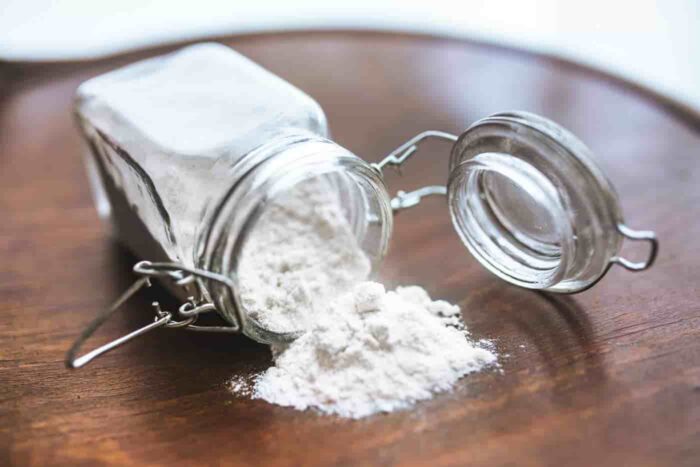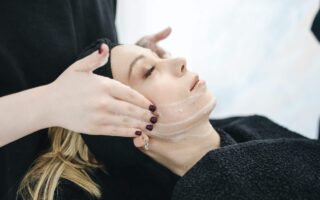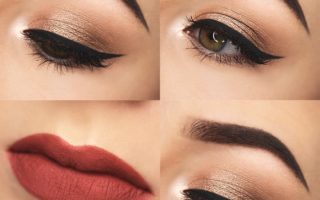Dandruff is an annoyance to many. It’s hard to get rid of however hard you try. It keeps on appearing on your head hurting your appearance and in turn, your confidence. Worry not, in this article, we’ll show you the best methods to get rid of persistent dandruff. If you are also troubled by your dandruff problem then here is the best solution for How To Get Rid Of Persistent Dandruff?
What is dandruff?
Dandruff is irritating, flaky, and you hope no one can notice it as it settles on your shoulders. Though you may feel like you’re the only one with this scalp issue, it’s relatively common. Up to 50% of people suffer from dandruff. An itchy scalp and flakiness characterize this ailment, but it can also produce additional symptoms such as oily areas on the scalp and tingling skin.
Dry skin, seborrheic dermatitis, sensitivity to hair products, and the formation of a specific type of fungus that dwells on the scalp are all underlying causes of dandruff. While there are several over-the-counter dandruff treatments available, natural therapies can be just as effective.
How to treat dandruff?
An over-the-counter dandruff shampoo can typically address your problem if you have a few flakes here and there. If it doesn’t, you might be suffering from a severe case, with your scalp feeling rough and crusty.
For stubborn dandruff, you’ll need to take a different technique. A specialist who specializes in dermatology, may be required.
What natural alternatives are there to treat dandruff?
Here are nine easy home methods for getting rid of dandruff naturally.
Baking soda
Baking soda, which can be found in most kitchens worldwide, is a simple, quick, and inexpensive way to cure dandruff. It’s said to work as a mild exfoliator, removing dead skin cells while also reducing scaling and itching.
Baking soda also contains antifungal qualities that might help with dandruff treatment. Baking soda’s antifungal properties were tested in a test tube on some of the most prevalent fungus strains that cause skin infections. After seven days, baking soda was shown to block fungal growth in 79 percent of specimens.
The effects of baking soda on 31 persons with psoriasis were studied in another research. After just three weeks of treatment with baking soda baths, both itching and irritation were dramatically reduced.
According to treatment recommendations, baking soda baths can also assist with irritation in other disorders, including atopic dermatitis.
Apply baking soda immediately to wet hair and massage it into your scalp for optimum results. Allow it to remain for a few minutes before washing your hair as usual.

Probiotics
Probiotics are helpful micro-organisms that are useful to one’s health. There are several possible probiotic advantages, including allergy prevention, decreased cholesterol levels, and weight loss.
Probiotics may also improve immunological function, which may aid the body in fighting dandruff-causing fungal infections. One research found that consuming probiotics for 56 days decreased the severity of dandruff in 60 persons.
Probiotics have also been proven to help reduce the symptoms of eczema and dermatitis, particularly in babies and children. Probiotics can be taken as a supplement for quick and easy dosing. They can also be found in many types of fermented foods such as kombucha, kimchi, tempeh, sauerkraut, and natto.
Omega 3
Omega-3 fatty acids are essential in the human body. They are essential in the operation of your heart, immune system, and lungs, as well as the cell membranes that enclose your cells.
Omega-3 fatty acids are essential for skin health as well. They aid in controlling oil production and hydration and wound healing and the prevention of premature aging. A lack of omega-3 fatty acids can result in various symptoms, such as dry hair, dry skin, and even dandruff.
Omega-3 fatty acids can also help decrease irritation and dandruff symptoms by reducing inflammation. Omega-3 fatty acids are abundant in fatty fish such as salmon, trout, and mackerel. You may also enhance your consumption of omega-3-rich foods like flaxseed, chia seeds, and walnuts by taking a fish oil supplement.
Aspirin
Aspirin’s anti-inflammatory actions are attributed to salicylic acid, one of the critical chemicals contained in the drug.
Salicylic acid, in addition to being present in aspirin, is also contained in several anti-dandruff shampoos. Salicylic acid acts by assisting in the removal of scaly skin and loosening flakes for removal.
In one research, 19 dandruff sufferers took one of two shampoos: piroctone olamine coupled with salicylic acid or zinc pyrithione. After four weeks, both shampoos could reduce dandruff, but the salicylic acid shampoo was more efficient in lowering the severity of scaling.
Another study found that a salicylic acid shampoo was just as effective as a prescription medicine for treating seborrhoeic dermatitis and dandruff.
Crush two aspirin pills and mix the powder with your shampoo before washing your hair for easy dandruff treatment.
Apple cider vinegar:
A range of health advantages has been linked to apple cider vinegar. These include boosting weight reduction and boosting insulin sensitivity. Apple cider vinegar is also commonly used as a natural dandruff treatment.
The vinegar’s acidity is said to aid in the shedding of dead skin cells on the scalp. Apple cider vinegar is also reported to help combat dandruff by balancing the skin’s pH and reducing the formation of fungus.
However, there are no studies to back up these claims, and many of the claims about the advantages of apple cider vinegar for dandruff are based on hearsay. Additional tests in the lab have shown that apple cider vinegar and its constituents can inhibit the growth of some fungi.
Add a few teaspoons of apple cider vinegar to your shampoo or mix it with other essential oils and spray straight on your hair if you want to test it.
De-stress yourself
The current pandemic brought about a multitude of different stressors like rent, job, and health-wise.
Many elements of health and well-being are thought to be affected by stress. It can have an impact on everything from chronic illnesses to mental wellness. While stress causes hair loss and a plethora of other symptoms, it does not cause dandruff, it can exacerbate symptoms like itching and dryness.
Long-term exposure to high amounts of stress may inhibit immune system functioning. A weaker immune system might make it harder for your body to fend off fungal infections and skin diseases that cause dandruff.
A study of 82 persons with seborrheic dermatitis, one of the most frequent causes of dandruff, found that a stressful life event preceded the majority of dermatitis episodes.
Try stress-reduction strategies like meditation, yoga, deep breathing, or aromatherapy to keep your stress levels in check.
Aloe vera
Aloe vera is a succulent commonly used in skincare products such as ointments, cosmetics, and lotions. Aloe vera is thought to help heal skin diseases such as burns, psoriasis, and cold sores when applied to the skin. It might also help in the treatment of dandruff.
Aloe vera’s antibacterial and antifungal qualities, according to one study, might help guard against dandruff. Similarly, aloe vera was found to be effective against various types of fungus in a test tube investigation, suggesting that it might help prevent fungal infections that cause hair loss from the scalp.
Aloe vera has also been shown to decrease inflammation in test tubes, which may help alleviate symptoms. Despite these encouraging outcomes, more research is needed to see how aloe vera affects dandruff directly.
Coconut oil
Coconut oil is well-known for its numerous health advantages, but it is also frequently used as a natural dandruff treatment. Coconut oil may assist in hydrating the skin and prevent dryness, which can exacerbate dandruff.
Coconut oil was shown to be just as efficient as mineral oil in enhancing skin hydration in a short trial of 34 participants. Coconut oil decreased symptoms by 68 percent after eight weeks, compared to 38 percent in the mineral oil group.
Coconut oil has also been shown to help treat eczema, a skin disease that may cause dandruff. The effects of coconut oil and mineral oil on atopic dermatitis, a form of eczema marked by itching and inflammation, were examined in one research.
Some test-tube experiments have revealed that coconut oil and its components have antibacterial characteristics, albeit the effects on the specific strain of fungus that causes dandruff to have yet to be investigated.
Tea tree oil
Tea tree oil has traditionally been used to treat anything from acne to psoriasis. It’s also been shown to have anti-microbial and anti-inflammatory effects, which might aid with dandruff problems.
According to one study, tea tree oil is effective against a particular type of fungus that can cause both seborrheic dermatitis and dandruff. Another four-week trial looked at the benefits of tea tree oil on dandruff by giving 126 persons a shampoo containing either 5% tea tree oil or a placebo regularly. Tea tree oil decreased the intensity of symptoms by 41% and reduced greasiness and itching after the research.
Tea tree oil might irritate the skin of persons with sensitive skin. Before applying it directly to the skin, dilute it by adding a few drops to a carrier oil like coconut oil.
The takeaway
Although dandruff may be a bothersome condition, there are a number of natural solutions that can help alleviate symptoms and bring comfort. Give a handful of these natural cures a try the next time you notice flakes.
To enhance therapeutic success, use these therapies alone or in combination with over-the-counter medications like anti-dandruff shampoos.




